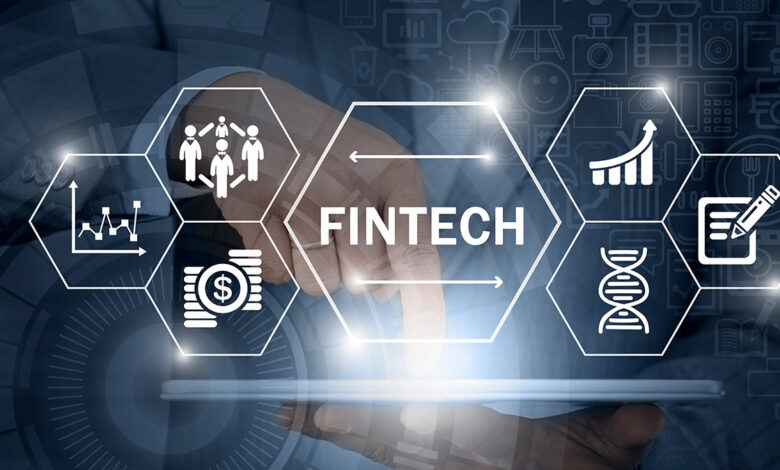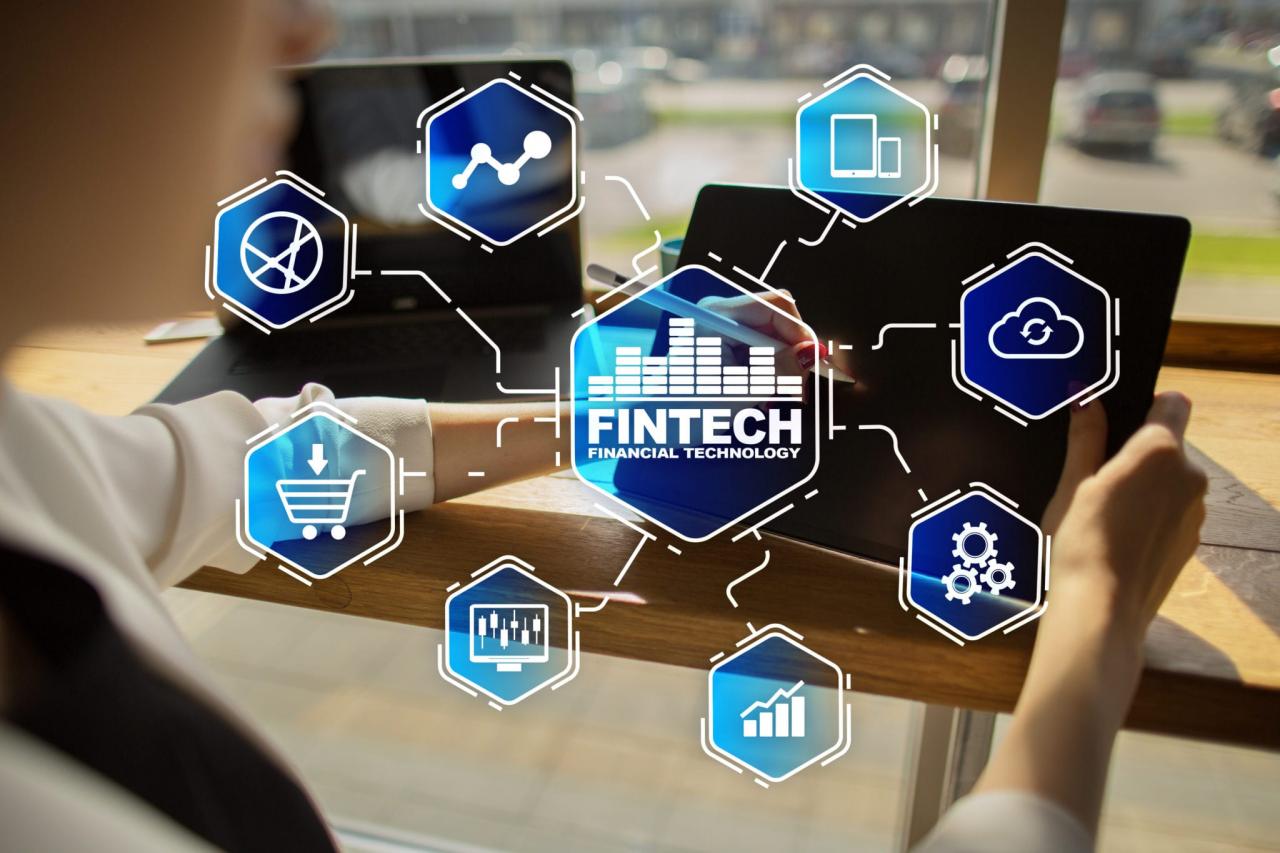Fintech’s Global Evolution Manages Financial Services

The financial world is in the midst of a profound transformation, driven by the rapid evolution of financial technology, or Fintech. What began as a series of digital experiments has blossomed into a global revolution, fundamentally altering how we manage money, conduct transactions, and access financial services. This isn’t just a story of new apps; it’s a paradigm shift that is democratizing finance, empowering individuals, and creating a more efficient and interconnected global economy. This article will explore the key drivers behind Fintech’s global evolution, including the rise of mobile payments, the power of blockchain, and the future of personalized finance. We will also delve into the challenges that lie ahead, from regulatory hurdles to cybersecurity threats, and the immense opportunities for a more inclusive financial future.
The Digital Foundation

The widespread adoption of smartphones and the internet has laid the groundwork for the Fintech revolution. Today, financial services are no longer confined to physical bank branches; they are accessible anytime, anywhere, in the palm of our hands.
A. Mobile Payments and Digital Wallets
The most visible change in Fintech is the rise of mobile payments. Digital wallets and peer-to-peer payment apps have made it possible to send and receive money with the same ease as sending a text message.
- Peer-to-Peer (P2P) Payments: Platforms like Venmo and Cash App have become ubiquitous, allowing friends to split a dinner bill or pay each other back instantly, bypassing traditional bank transfers.
- Contactless Transactions: The use of NFC (Near-Field Communication) technology in smartphones and credit cards has made contactless payments the new standard, a shift accelerated by the need for hygiene during the pandemic.
- Cross-Border Remittances: Fintech companies are disrupting the traditional remittance market by offering cheaper, faster, and more transparent ways for individuals to send money across international borders, bypassing costly bank fees.
This shift has not only made transactions more convenient but has also brought financial services to billions of people who were previously unbanked or underbanked, particularly in developing nations.
B. The Unbundling of Financial Services
Historically, banks offered a bundle of services—checking, savings, loans, and investments—all under one roof. Fintech has “unbundled” these services, with specialized companies offering a single, superior service.
- Digital-Only Banks (Neobanks): These banks operate entirely online, without physical branches. They are often more agile, offer lower fees, and provide a superior user experience, forcing traditional banks to innovate or risk becoming obsolete.
- Specialized Lending: Fintech lenders are using new data sources, such as social media and digital transaction history, to assess creditworthiness, making loans more accessible to a wider range of individuals and small businesses.
- Robo-Advisors: These automated investment platforms use algorithms to manage a user’s portfolio based on their financial goals and risk tolerance. They offer a low-cost alternative to traditional financial advisors, democratizing investment for a new generation.
The Technology Behind the Revolution
The transformative power of Fintech is built on a foundation of groundbreaking technologies. These innovations are not just making existing processes more efficient; they are creating entirely new possibilities.
A. Blockchain and Decentralized Finance (DeFi)
Blockchain, the decentralized ledger technology behind cryptocurrencies like Bitcoin, is a core pillar of the Fintech revolution. It promises a future where financial transactions are more transparent, secure, and trustless, without the need for a central authority.
- Smart Contracts: These self-executing contracts with the terms of the agreement directly written into code are a game-changer. They can automate complex financial transactions, reducing the need for intermediaries and increasing efficiency.
- Decentralized Finance (DeFi): DeFi is a movement that seeks to build a financial system that operates entirely on blockchain, without banks or traditional institutions. It includes decentralized exchanges, lending platforms, and other financial tools that are open to anyone with an internet connection.
- Supply Chain Finance: Blockchain can be used to track goods and payments in a supply chain, increasing transparency and reducing fraud. This can lead to more efficient trade finance and a more secure global economy.
B. Artificial Intelligence and Machine Learning
Artificial intelligence (AI) and machine learning (ML) are the intelligence behind many modern Fintech applications. They are used to analyze vast datasets, automate processes, and personalize the user experience.
- Fraud Detection: AI algorithms can analyze millions of transactions in real-time to detect unusual patterns and flag fraudulent activity with a level of accuracy that is impossible for a human to match.
- Credit Scoring: AI is being used to create more inclusive and accurate credit scores by analyzing a wider range of data points, such as utility payments and online behavior, expanding access to credit for those with “thin” credit files.
- Personalized Financial Management: AI-powered apps can analyze a user’s spending habits and provide personalized recommendations for budgeting, saving, and investing, acting as a personal financial coach.
The Global Impact

Fintech’s evolution is not just a Western phenomenon; it is a global one, with a profound impact on economies worldwide.
A. Financial Inclusion
In many parts of the world, a significant portion of the population lacks access to basic financial services. Fintech is closing this gap by providing simple, affordable, and accessible tools.
- Mobile Banking in Africa: In countries like Kenya, mobile money platforms have become a primary means of transaction, allowing millions of people to save, send, and receive money without a traditional bank account.
- Digital Payments in Asia: In countries like China and India, QR code-based payments have become a part of everyday life, enabling a cash-less society and boosting commerce.
This financial inclusion is a key driver of economic development, as it allows individuals to save, invest in their businesses, and build a more stable financial future.
B. The New Battleground
Traditional banks are no longer just competing with each other; they are competing with a new wave of agile, tech-savvy startups. This has forced them to adapt and innovate at a rapid pace.
- Partnerships with Fintechs: Many traditional banks are choosing to partner with Fintech companies, leveraging their technology and expertise to improve their own services and stay competitive.
- Internal Innovation: Banks are investing heavily in their own digital transformation, building their own apps, and adopting new technologies to enhance the customer experience.
- The API Economy: Banks are opening up their systems through APIs (Application Programming Interfaces), allowing Fintech companies to build new services on top of their existing infrastructure.
Challenges and Opportunities
While the future of Fintech is bright, there are significant challenges that must be addressed to ensure its long-term success and positive impact.
A. Regulation and Compliance
The rapid pace of innovation has outstripped the ability of regulators to keep up. There is a need for new regulatory frameworks that protect consumers and prevent illicit activity without stifling innovation.
- Consumer Protection: As more financial activity moves online, there is a greater need to protect consumers from fraud, scams, and predatory lending practices.
- Data Security: The vast amount of sensitive personal and financial data collected by Fintech companies makes them a prime target for cyberattacks. Robust cybersecurity measures are essential to maintain user trust.
- Anti-Money Laundering (AML): Regulators are grappling with how to monitor and prevent illicit financial activity on decentralized platforms and cross-border payment systems.
B. The Digital Divide
While Fintech has done much to promote financial inclusion, a significant portion of the global population still lacks access to the internet and smartphones. Bridging this digital divide is essential to ensure that the benefits of Fintech are distributed equitably.
C. The Human Element
As financial services become more automated, the question of when and how to integrate a human element becomes crucial. While algorithms are great for number-crunching, a human touch is still needed for complex financial advice and emotional support. The future of finance will likely involve a hybrid model that combines the efficiency of AI with the empathy of a human advisor.
Conclusion
Fintech’s global evolution is a story of disruption, innovation, and transformation that is fundamentally reshaping the financial landscape. It has moved far beyond a niche sector to become a central force in the global economy, driven by the widespread adoption of mobile technology and the power of groundbreaking innovations like blockchain and artificial intelligence. This shift has not only made financial services more convenient for the connected world but has also played a crucial role in promoting financial inclusion, bringing banking and credit to billions who were previously left behind. The unbundling of traditional bank services has created a dynamic and competitive ecosystem of specialized companies, from neobanks to robo-advisors, each offering superior, tailored experiences that are forcing legacy institutions to innovate or face obsolescence.
Yet, this rapid transformation is not without its challenges. The pace of innovation has created a complex regulatory environment that is still catching up, with urgent needs for new frameworks to ensure consumer protection, data security, and the prevention of illicit activities. The digital divide remains a significant hurdle, as the benefits of a digital financial system cannot be fully realized without universal access to the internet and smart devices. Looking ahead, the future of finance is likely to be a hybrid one, blending the efficiency and scalability of AI-driven automation with the essential human element of trust and empathy for complex financial decisions. The ongoing evolution of Fintech is a testament to its potential to create a more efficient, transparent, and inclusive global financial system. Its ultimate success will be measured not just by its technological prowess but by its ability to empower individuals, bridge economic divides, and build a financial future that works for everyone, everywhere.
